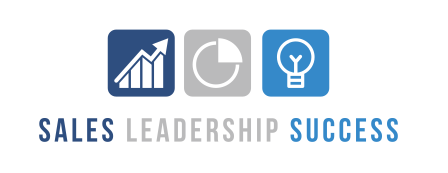The Art of Discovery in Sales: Know vs Ask

The Pitch
In the realm of sales, the discovery phase is where the magic happens. It's the investigative stage, where a salesperson's acumen is put to the test. The approach taken during this phase can either build a foundation of trust or raise walls of skepticism. This article will explore the dichotomy between 'knowing' versus 'asking' in the discovery process and how the former can significantly enhance the quality of your sales interactions.
Here is the difference
Know:
Knowing is about preparation and insight. It's about understanding the common challenges and pain points that customers face in their industry. When you lead the conversation with knowledge, you're not just a salesperson; you're a consultant who adds value. This approach demonstrates competency and positions you as an expert in your field. It's a proactive stance that can quickly build trust with a prospect. By knowing the issues, you can tailor your conversation to address the customer's needs before they even articulate them. This level of preparedness shows that you've done your homework and that you're genuinely interested in solving their problems. It's about being one step ahead, anticipating the customer's needs, and having the solutions ready. This doesn't mean you won't ask questions; it means your questions will be more focused, more insightful, and more likely to lead to meaningful dialogue. Knowing the issues is also about listening. It's about using the knowledge you have to interpret what the customer is saying and to read between the lines. It's about understanding not just the words, but the context and the underlying concerns that the customer may not be able to express directly.
Ask:
Asking, on the other hand, is about exploration and curiosity. It's about uncovering the customer's specific needs and situations. However, if not done skillfully, it can come across as unprepared or even lazy. It can make the salesperson seem like they are just another vendor trying to sell a product, rather than a partner looking to provide a solution. Asking generic questions can position you as a commodity seller, which can build suspicion rather than trust. The key to effective asking is to make your questions as informed and targeted as possible. It's about using the knowledge you have to ask deeper, more strategic questions that show you're looking to understand the customer's unique situation. It's about being a detective, looking for clues and insights that can help you provide a more tailored and effective solution. Asking is not about following the conversation; it's about guiding it through the questions you ask. It's about using questions to lead the customer to insights and conclusions that they may not have reached on their own.
So What?
The distinction between knowing and asking in the discovery process is not just a matter of semantics; it's a matter of strategy. Knowing the issues allows you to lead the conversation with authority and confidence. It enables you to position yourself as a value-added partner rather than just another salesperson. On the other hand, asking the right questions can deepen your understanding of the customer's needs and strengthen the relationship. The key is to blend both approaches: to use your knowledge to ask better, more insightful questions that demonstrate your expertise and your commitment to solving the customer's problems.
Next Steps
✅ Research common industry challenges.
✅ Develop a list of insightful questions.
✅ Practice your discovery conversations.
✅ Refine your approach based on feedback.
Closed Won!
Mastering the art of discovery is a critical skill for any salesperson. By knowing the issues and asking the right questions, you can build trust quickly and position yourself as a trusted advisor. What strategies have you found effective in your discovery process? How do you balance knowing with asking to build trust and demonstrate value? Share your experiences and insights below, and let's discuss what works best in the complex dance of sales discovery.
